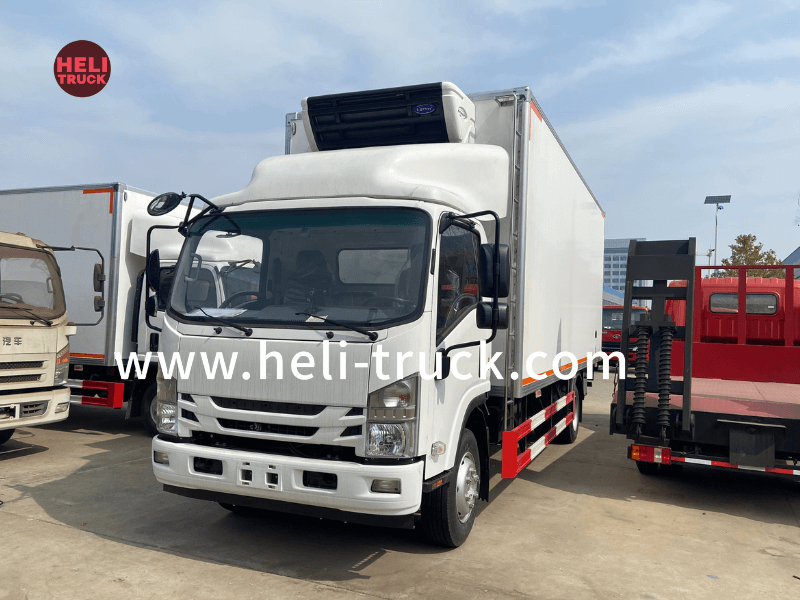Revolutionizing Waste Management The Power of Garbage Compactor Trucks with Remote Control

Introduction
Garbage compactor trucks have been a crucial part of waste management systems in cities and urban areas for many years. These specialized vehicles play a significant role in collecting and compacting waste, making it easier to transport and dispose of efficiently. In recent years, technological advancements have led to the development of garbage compactor trucks with remote control capabilities, revolutionizing the way waste management operations are carried out.
This article explores the evolution of garbage compactor trucks, the benefits of using remote control technology in waste management, and the impact of these innovations on the efficiency and effectiveness of waste collection and disposal processes.
Evolution of Garbage Compactor Trucks

Garbage compactor trucks, also known as refuse trucks or trash compactors, have come a long way since their inception. The earliest forms of garbage collection involved manual labor, with workers collecting waste from households and businesses and transporting it to disposal sites. As urban populations grew and waste production increased, there was a need for more efficient and hygienic methods of waste collection and disposal.
The first mechanized garbage collection vehicles were introduced in the early 20th century, with the development of trucks equipped with compactors that could crush and compress waste to increase carrying capacity. These early compactor trucks were operated manually, with workers controlling the compaction process from inside the vehicle.
Over the years, advancements in technology have led to the development of more sophisticated garbage compactor trucks, with features such as hydraulic compactors, automated loading systems, and onboard waste sorting mechanisms. These innovations have significantly improved the efficiency and effectiveness of waste collection operations, allowing for faster and more hygienic waste disposal processes.
Benefits of Remote Control Technology in Waste Management
One of the most significant advancements in garbage compactor trucks in recent years is the integration of remote control technology. Remote control systems allow operators to control the compaction process and other functions of the vehicle from a distance, improving safety, efficiency, and convenience in waste management operations.
One of the key benefits of remote control technology in garbage compactor trucks is improved safety for operators. By allowing operators to control the compaction process and other functions of the vehicle from a safe distance, remote control systems reduce the risk of accidents and injuries that can occur during waste collection and disposal operations. This is especially important in hazardous waste disposal situations, where exposure to toxic or infectious materials can pose a significant risk to workers.
Remote control technology also enhances the efficiency of waste collection operations by allowing operators to control the compaction process more precisely. By adjusting the compaction pressure and cycle times remotely, operators can optimize the use of space in the vehicle and maximize the amount of waste that can be collected and transported in each trip. This leads to cost savings and increased productivity in waste management operations.
In addition to safety and efficiency benefits, remote control technology in garbage compactor trucks also offers improved convenience for operators. By eliminating the need for manual operation of the compaction process, remote control systems make it easier for operators to focus on other tasks and responsibilities during waste collection operations. This can lead to reduced fatigue and improved job satisfaction among waste management personnel.
Impact of Remote Control Garbage Compactor Trucks on Waste Management
The introduction of garbage compactor trucks with remote control technology has had a significant impact on waste management practices in cities and urban areas around the world. These innovative vehicles have transformed the way waste collection and disposal operations are carried out, leading to improved efficiency, safety, and sustainability in the waste management industry.
One of the key impacts of remote control garbage compactor trucks is the reduction in operating costs for waste management companies. By improving the efficiency of waste collection operations and reducing the time and labor required to compact and transport waste, remote control technology helps companies save money on fuel, maintenance, and labor costs. This allows waste management companies to operate more sustainably and competitively in an increasingly crowded market.
Remote control garbage compactor trucks also contribute to improved environmental sustainability in waste management practices. By optimizing the compaction process and maximizing the use of space in the vehicle, these innovative vehicles help reduce the number of trips required to collect and transport waste, leading to lower carbon emissions and reduced fuel consumption. This contributes to a cleaner and healthier environment for communities and helps mitigate the impact of waste disposal on the planet.
Furthermore, remote control garbage compactor trucks enhance the overall effectiveness of waste management systems by streamlining the waste collection and disposal process. By enabling https://www.heli-truck.com/howo-12ton-reefer-van-truck-2/ to control the compaction process and other functions of the vehicle remotely, these advanced vehicles help ensure that waste is collected and transported efficiently and hygienically, reducing the risk of contamination and pollution in the environment.
Conclusion
Garbage compactor trucks with remote control capabilities represent a significant advancement in waste management technology, offering numerous benefits for operators, waste management companies, and the environment. These innovative vehicles have revolutionized the way waste collection and disposal operations are carried out, improving safety, efficiency, and sustainability in the waste management industry.
As technology continues to evolve and new innovations are introduced, the future of waste management looks promising, with remote control garbage compactor trucks playing a key role in driving efficiency and effectiveness in waste collection and disposal processes. By harnessing the power of technology, waste management companies can continue to improve their operations and contribute to a cleaner, healthier environment for future generations.
